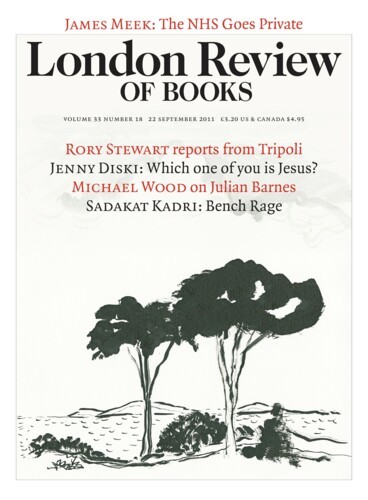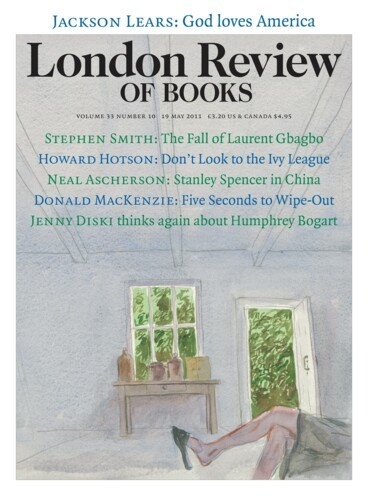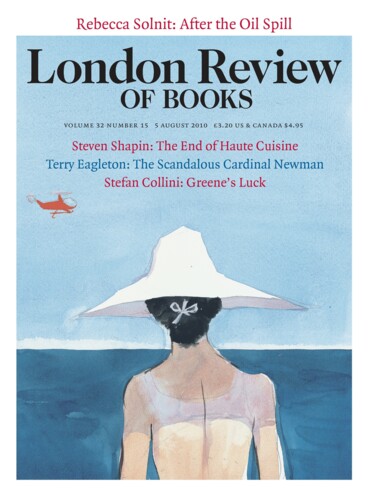Overdoing the Synge-song: Sebastian Barry
Terry Eagleton, 22 September 2011
In the great lineage of classical realism from Stendhal to Tolstoy, a whole history is summarised in the fortunes of a particular family or set of characters. Individuals are portrayed in all their idiosyncrasy, but are made to represent more than themselves. Things are at once unique and exemplary. A belatedly flowering example of the species is The Leopard, in which the slow decay of a...





